There’s something quietly magnetic about Japanese names that mean “dark”—not in a gloomy way, but in the way twilight settles over a mountain, or how shadows dance under cherry blossoms at dusk. In Japanese names that mean “dark” culture, darkness isn’t just an absence of light. It holds mystery, depth, even a kind of elegant beauty that whispers rather than shouts.
Maybe you’re drawn to names with a moody edge, or you’re searching for something that feels both ancient and alive. Whatever brought you here, these Japanese names that mean “dark” or shadow each tell their own quiet story—some poetic, some fierce, all deeply human in ways that transcend simple translation.
Japanese Boy Names Meaning Dark

If you’re looking for a name that carries quiet strength and a touch of mystery, these dark-inspired Japanese names that mean “dark” boy names might just speak to you. They’re not heavy or gloomy—they feel more like midnight skies full of stars, grounded and beautifully deep.
- Kurai (暗い) – Literally means “dark” or “gloomy”
- Yami (闇) – Pure darkness or shadow
- Ankoku (暗黒) – Deep, pitch-black darkness
- Kurogane (黒鉄) – Black iron, strong and unyielding
- Shade (シェード) – Modern twist meaning shadow
- Kuroto (黒人) – Dark person or shadow figure
- Yoru (夜) – Night itself
- Kage (影) – Shadow that follows silently
- Mei (冥) – Dark, underworld, mysterious realm
- Shinobu (忍) – To endure in the shadows
- Ankō (暗光) – Dim light within darkness
- Kurayami (暗闇) – Complete darkness, no light
- Yamiyo (闇夜) – Dark night, moonless sky
- Kokuyō (黒曜) – Obsidian, black volcanic glass
- Kuroshiro (黒白) – Black and white, duality
- Inei (陰影) – Shadow and shade combined
- Shikkoku (漆黒) – Jet black, deepest dark
- Ankei (暗景) – Dark scenery or shadowed view
- Yamikaze (闇風) – Dark wind from nowhere
- Kuromaru (黒丸) – Black circle, complete and whole
- Ankou (暗光) – Faint light in darkness
- Yamiichi (闇一) – First of the dark
- Kurohiko (黒彦) – Dark prince, noble shadow
- Kagero (陽炎/影郎) – Shadow boy, heat shimmer
- Yamitatsu (闇竜) – Dark dragon rising
- Kurozō (黒蔵) – Keeper of darkness
- Ankichi (暗吉) – Dark good fortune
- Yamiharu (闇春) – Dark spring, new beginnings
- Kuroji (黒二) – Second darkness
- Meito (冥人) – Man of the dark realm
- Ankuro (暗黒) – Deep shadow walker
- Yamitaka (闇高) – High darkness, elevated shadow
- Kuronori (黒則) – Dark rules or principles
- Kagerou (影郎) – Shadow gentleman
- Yamiaki (闇明) – Dark light paradox
- Kurohei (黒平) – Peaceful darkness
- Anshiro (暗白) – Dark and light balance
- Yamitoshi (闇利) – Profitable darkness
- Kurosuke (黒介) – Dark helper or assistant
- Meijin (冥人) – Person of mysterious darkness
Japanese Names Meaning Dark For Girls
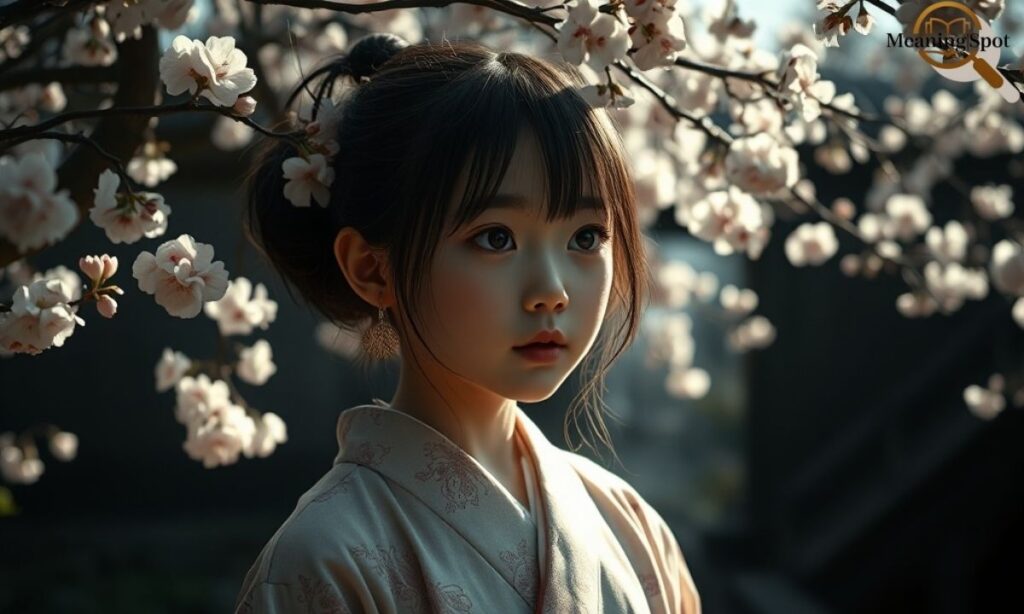
Girls’ names with dark meanings carry their own kind of grace—think moonlit gardens and quiet strength wrapped in elegance. These names feel both delicate and fearless, perfect for someone who walks confidently through her own shadows.
- Yami (闇) – Darkness with feminine softness
- Kurai (暗) – Gentle gloom, quiet mystery
- Kage (影) – Shadow that dances lightly
- Yoru (夜) – Night, calm and endless
- Kurumi (胡桃/黒美) – Black beauty or walnut
- Mei (冥/冥) – Dark, mysterious underworld
- Ankō (暗香) – Dark fragrance, hidden scent
- Yamiyo (闇夜) – Moonless night sky
- Kuroka (黒花) – Black flower blooming
- Shinobu (忍) – Enduring quietly in shadow
- Ineko (陰子) – Child of shadows
- Yamiko (闇子) – Daughter of darkness
- Anzu (暗図) – Dark design or plan
- Kurara (暗羅) – Dark silk, elegant mystery
- Kagemi (影美) – Beautiful shadow
- Yumei (幽冥) – Dim and mysterious realm
- Ankiko (暗希子) – Child of dark hope
- Shizuka (静香/暗) – Quiet darkness, peaceful
- Yamina (闇菜) – Dark greens, hidden growth
- Kuroyuki (黒雪) – Black snow falling softly
- Meiko (冥子) – Child of the dark realm
- Anri (暗璃) – Dark jewel, hidden gem
- Yamihana (闇花) – Flower of darkness
- Kuroha (黒羽) – Black feather, raven’s wing
- Kageko (影子) – Shadow child
- Yamiho (闇帆) – Dark sail on night waters
- Kurone (黒音) – Black sound, silent echo
- Anka (暗香) – Dark perfume lingering
- Yamiri (闇里) – Dark village, hidden home
- Kuroka (黒歌) – Black song, haunting melody
- Meina (冥菜) – Dark greens of underworld
- Ankina (暗奈) – Dark Nara, mysterious place
- Yamiha (闇葉) – Dark leaf falling
- Kuromiya (黒宮) – Black palace, dark shrine
- Kagena (影奈) – Shadow of Nara
- Yamie (闇絵) – Dark painting, shadow art
- Kurono (黒乃) – Possessing darkness
- Anemi (暗美) – Dark beauty within
- Yamichi (闇知) – Knowledge of darkness
- Kurosei (黒星) – Black star shining alone
Gender-Neutral Japanese Names Meaning Dark
Some names don’t need labels—they just feel right, no matter who wears them. These gender-neutral Japanese names that mean “dark” carry a beautiful balance, strong enough for anyone who loves the quiet mystery that shadows bring.
- Yami (闇) – Pure darkness, timeless and universal
- Kage (影) – Shadow following anyone equally
- Yoru (夜) – Night that embraces all
- Mei (冥) – Dark realm, mysterious and deep
- Kurai (暗) – Dim light, gentle gloom
- Shinobu (忍) – Enduring in shadows silently
- Ankoku (暗黒) – Pitch-black darkness complete
- Kurayami (暗闇) – Total darkness, no boundaries
- Inei (陰影) – Shade and shadow blended
- Yamiyo (闇夜) – Dark night without moon
- Kokuyō (黒曜) – Obsidian, volcanic black glass
- Kagero (陽炎) – Heat shimmer, shadow illusion
- Shikkoku (漆黒) – Jet black, deepest shade
- Kuroto (黒人) – Dark figure walking
- Yamikaze (闇風) – Wind from darkness
- Ankou (暗光) – Faint light within dark
- Kurogane (黒鉄) – Black iron, unbreakable
- Meiki (冥気) – Dark energy flowing
- Kuroha (黒羽) – Black feather drifting
- Yamiji (闇路) – Path through darkness
- Ankei (暗景) – Shadowed scenery around
- Kuroyuki (黒雪) – Black snow falling
- Kagemi (影身) – Shadow body existing
- Yamichi (闇知) – Knowledge of darkness
- Kurone (黒音) – Black sound echoing
- Anri (暗璃) – Dark jewel hidden
- Yamiho (闇帆) – Dark sail drifting
- Kuroji (黒路) – Black road ahead
- Meito (冥途) – Journey through darkness
- Kageto (影人) – Person made of shadow
Popular Japanese Names That Mean Dark
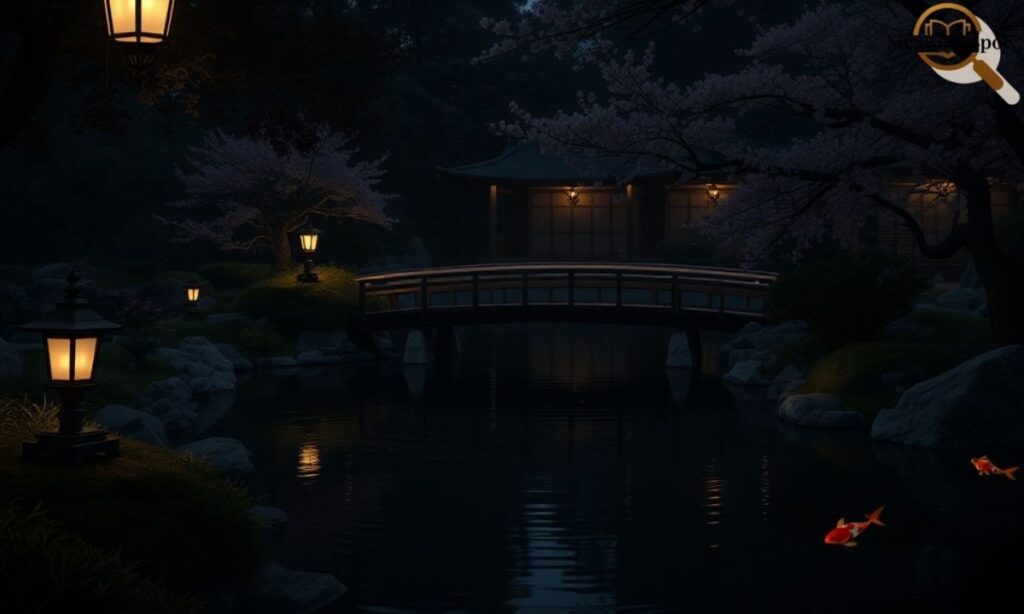
You’ve probably heard some of these Japanese names that mean “dark” before—they’re the ones that stuck around because they hit differently. Classic, memorable, and still full of that shadowy charm people can’t quite shake off.
- Kuro (黒) – Simply “black,” iconic and bold
- Yami (闇) – Darkness everyone recognizes instantly
- Mei (冥) – Popular for its mysterious vibe
- Kage (影) – Shadow, loved for its simplicity
- Yoru (夜) – Night, timeless and poetic
- Kurumi (黒美) – Black beauty, elegantly dark
- Shinobu (忍) – Enduring shadow, ninja-famous
- Ankoku (暗黒) – Deep darkness, dramatic choice
- Kurogane (黒鉄) – Black iron, strong favorite
- Yamiyo (闇夜) – Dark night, romantically gloomy
- Kurai (暗) – Dim and moody pick
- Meiko (冥子) – Child of darkness, well-loved
- Kokuyō (黒曜) – Obsidian, naturally cool
- Shikkoku (漆黒) – Jet black, ultra-dramatic
- Kuroka (黒花) – Black flower, hauntingly pretty
- Kageko (影子) – Shadow child, gentle classic
- Yamiko (闇子) – Daughter of darkness, traditional
- Kurayami (暗闇) – Total darkness, unforgettable
- Inei (陰影) – Shade, artistically inspired
- Kurohiko (黒彦) – Dark prince, noble sound
- Ankō (暗光) – Dim light, paradoxically beautiful
- Yamikaze (闇風) – Dark wind, mysteriously poetic
- Kuroha (黒羽) – Black feather, gracefully dark
- Meiji (冥示) – Dark revelation showing
- Kagemi (影美) – Beautiful shadow shining
- Kuroyuki (黒雪) – Black snow, uniquely striking
- Yamihana (闇花) – Darkness flower blooming
- Kuromaru (黒丸) – Black circle, perfectly complete
- Ankiko (暗希子) – Child of dark hope
- Yamitatsu (闇竜) – Dark dragon, powerfully memorable
Japanese Last Names With Dark Meanings
Last names carry family stories, and some Japanese surnames hold darkness in ways that feel almost ancestral—like they’ve been protecting secrets for generations. These aren’t just random words; they’re legacies tied to places, landscapes, and old family tales that refused to fade. If you’ve ever wondered which surnames lean into shadow and mystery, here’s where those bloodlines live.
- Kurosawa (黒沢) – Black swamp
- Yamada (闇田) – Dark rice field
- Kageyama (影山) – Shadow mountain
- Kurokawa (黒川) – Black river
- Ankoku (暗黒) – Deep darkness
- Kuroki (黒木) – Black tree
- Yamashita (闇下) – Under darkness
- Kageura (影浦) – Shadow bay
- Kurohashi (黒橋) – Black bridge
- Meiji (冥寺) – Dark temple
- Yamamoto (闇本) – Origin of darkness
- Kurono (黒野) – Black field
- Kagemura (影村) – Shadow village
- Kurotani (黒谷) – Black valley
- Ankawa (暗川) – Dark stream
- Kuroyama (黒山) – Black mountain
- Yamikawa (闇川) – Darkness river
- Kagehara (影原) – Shadow plains
- Kuroshima (黒島) – Black island
- Meidō (冥堂) – Dark hall
Japanese Names That Mean Shadow
Shadows move differently than darkness—they’re alive, always shifting with the light. These Japanese names that mean “dark” or shadow feel like they’re dancing between worlds, never quite still. There’s something poetic about shadow names, like they’re attached to something real but just out of reach, following you without ever fully appearing.
- Kage (影) – Pure shadow
- Kagemi (影美) – Beautiful shadow
- Kageko (影子) – Shadow child
- Kagerou (陽炎) – Shadow shimmer
- Kageto (影人) – Shadow person
- Kagena (影奈) – Shadow grace
- Kageaki (影明) – Shadow light
- Kageyuki (影雪) – Shadow snow
- Kagehiko (影彦) – Shadow prince
- Kagemaru (影丸) – Shadow circle
- Kageha (影羽) – Shadow feather
- Kagezō (影蔵) – Shadow keeper
- Kagenori (影則) – Shadow law
- Kageharu (影春) – Shadow spring
- Kagetaka (影高) – High shadow
- Kagetsuki (影月) – Shadow moon
- Kagetatsu (影竜) – Shadow dragon
- Kagemitsu (影光) – Shadow light
- Kagehiro (影広) – Wide shadow
- Kagenobu (影信) – Trusted shadow
What Does the Name That Means Shadow in Japanese Signify?
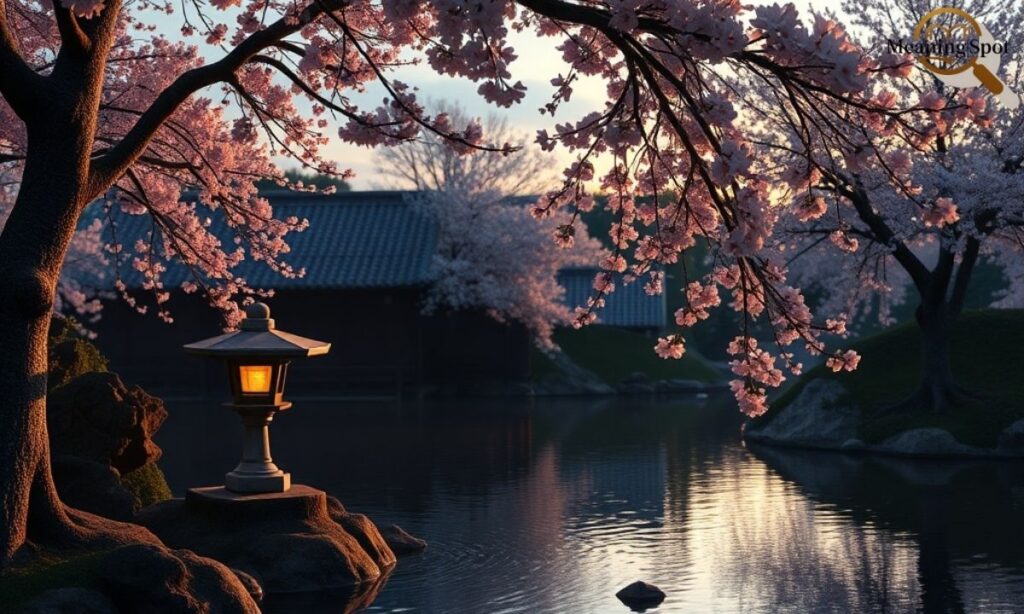
When you choose a name that means shadow in Japanese, you’re not just picking something edgy or cool—you’re tapping into layers of meaning that go way deeper than English translations can capture. Shadows in Japanese culture aren’t villains or bad omens. They’re protectors, silent companions, and symbols of things unseen but deeply felt. A shadow name carries mystery, yes, but also loyalty, because shadows never leave your side.
- Kage (影) – Loyal presence following
- Kagemi (影身) – Second self existing
- Kagezuka (影塚) – Shadow mound protecting
- Kagemusha (影武者) – Shadow warrior standing
- Kagebōshi (影法師) – Shadow monk watching
- Kagetomo (影友) – Shadow companion walking
- Kagemori (影守) – Shadow guardian staying
- Kagemai (影舞) – Shadow dance moving
- Kagenami (影波) – Shadow wave flowing
- Kagehime (影姫) – Shadow princess hiding
- Kageoto (影音) – Shadow sound echoing
- Kagemichi (影道) – Shadow path leading
- Kagetsuru (影鶴) – Shadow crane flying
- Kagetsubasa (影翼) – Shadow wings spreading
- Kagenagi (影凪) – Shadow calm settling
- Kagemizuki (影見月) – Shadow viewing moon
- Kagetoki (影時) – Shadow time passing
- Kagehoshi (影星) – Shadow star shining
- Kagesora (影空) – Shadow sky covering
- Kageyume (影夢) – Shadow dream drifting
The Deeper Meanings of Shadow in Japanese Culture
In Japan, shadows aren’t just the absence of light—they’re a philosophy, an aesthetic, even a way of seeing beauty. The concept lives in art, architecture, and the quiet spaces between words where meaning breathes. Understanding shadow in Japanese culture means understanding that some of the most powerful things in life don’t need to shout; they exist in the in-between, patient and enduring.
- Yūgen (幽玄) – Mysterious shadow depth
- Inei (陰影) – Aesthetic shade beauty
- Kurai (暗い) – Gentle gloom space
- In’ei Raisan (陰翳礼讃) – Praise of shadows
- Mono no Aware (物の哀れ) – Shadow of impermanence
- Wabi-Sabi (侘寂) – Beauty in shadow
- Yami (闇) – Protective darkness holding
- Kagefumi (影踏み) – Shadow stepping ritual
- Kagerō (陽炎) – Shimmer between worlds
- Kurayami Matsuri (暗闇祭) – Darkness festival celebrating
- Inton (隠遁) – Retreat into shadow
- Yūdachi (夕立) – Evening shadow rain
- Tasogare (黄昏) – Twilight shadow hour
- Omotekage (面影) – Shadow of memory
- Kageroi (影牢) – Shadow prison binding
- In’yō (陰陽) – Shadow light balance
- Kuroyami (黒闇) – Black shadow merging
- Kagerō no Koi (陽炎の恋) – Fleeting shadow love
- Yoin (余韻) – Lingering shadow echo
- Kageshirube (影標) – Shadow as guide
Cool Japanese Names with Shadow Meanings
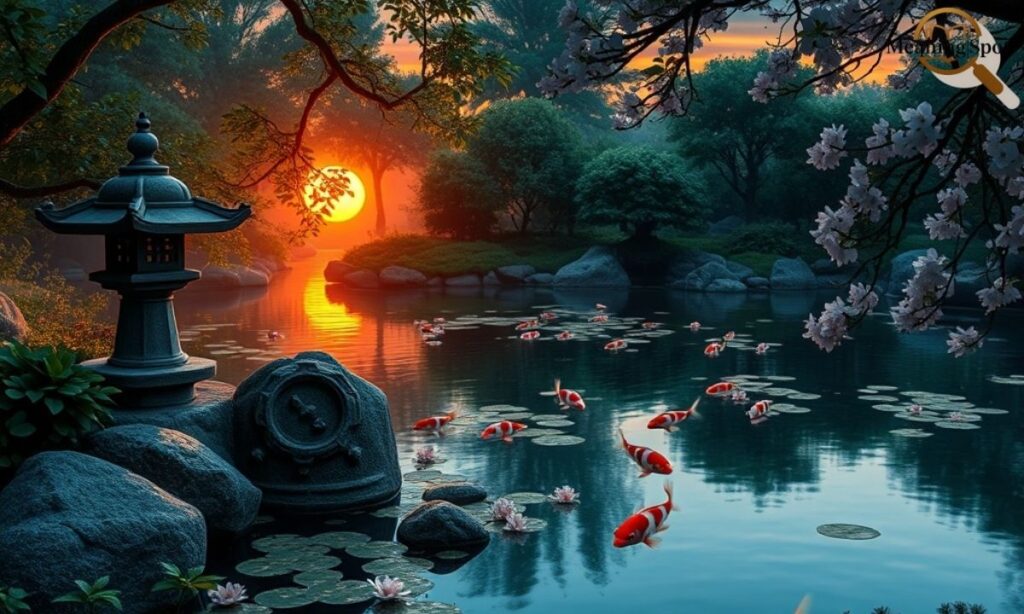
If you want a name that sounds effortlessly cool while carrying that shadowy edge, these picks hit differently. They’re not trying too hard—they just have that natural vibe, like someone who walks into a room and changes the energy without saying a word. These names feel modern, a little mysterious, and undeniably memorable in all the right ways.
- Kageto (影人) – Shadow figure walking
- Yamikaze (闇風) – Dark wind blowing
- Kurogane (黒鉄) – Black iron, unbreakable
- Kagerou (陽炎) – Heat shimmer illusion
- Shikkoku (漆黒) – Jet black depth
- Yamitatsu (闇竜) – Dark dragon rising
- Kagezō (影蔵) – Shadow keeper holding
- Kurohiko (黒彦) – Dark prince standing
- Yamikaze (闇風) – Midnight breeze drifting
- Kagemitsu (影光) – Shadow meeting light
- Kurozora (黒空) – Black sky covering
- Yamijin (闇刃) – Dark blade cutting
- Kagetsubasa (影翼) – Shadow wings spreading
- Kokuyō (黒曜) – Obsidian volcanic glass
- Yamiakuma (闇悪魔) – Dark demon lurking
- Kageryū (影流) – Shadow flow moving
- Kuroyasha (黒夜叉) – Black night demon
- Yamigami (闇神) – Shadow deity watching
- Kagehoshi (影星) – Shadow star glowing
- Kuroken (黒剣) – Black sword striking
- Yamiryū (闇流) – Darkness current flowing
- Kagetsuki (影月) – Shadow moon hanging
- Kuroōji (黒王子) – Black prince ruling
- Yamiakira (闇明) – Dark brightness paradox
- Kagetora (影虎) – Shadow tiger prowling
Japanese Shadow-Inspired Names and Meanings
Shadow-inspired names don’t always shout “darkness” at you—sometimes they whisper it through nature, seasons, or moments caught between day and night. These names pull from shadow without being obvious about it, borrowing from twilight skies, silent footsteps, and things that exist just beyond what you can fully see. They’re subtle, poetic, and they stick with you longer than you’d expect.
- Tasogare (黄昏) – Twilight between worlds
- Yūdachi (夕立) – Evening shadow shower
- Shinobi (忍) – Silent shadow walker
- Kurenai (暗紅) – Dark crimson bleeding
- Kagefumi (影踏み) – Shadow stepping game
- Yūrei (幽霊) – Shadow spirit lingering
- Kuroyuki (黒雪) – Black snow falling
- Yamabiko (山彦/闇彦) – Dark mountain echo
- Kageroi (陽炎) – Wavering shadow mirage
- Tsukikage (月影) – Moonlight shadow cast
- Kurohana (黒花) – Black blossom blooming
- Yamisakura (闇桜) – Dark cherry tree
- Kagefune (影船) – Shadow boat sailing
- Kuroyoru (黒夜) – Black night descending
- Yamikumo (闇雲) – Dark cloud gathering
- Kagenatsu (影夏) – Shadow summer hiding
- Kurotsuki (黒月) – Black moon rising
- Yamiame (闇雨) – Dark rain pouring
- Kagekaze (影風) – Shadow breeze passing
- Kuroyume (黒夢) – Black dream drifting
- Yamitani (闇谷) – Dark valley sleeping
- Kagenami (影波) – Shadow wave rolling
- Kuroharu (黒春) – Black spring arriving
- Yamikoori (闇氷) – Dark ice forming
- Kagesora (影空) – Shadow sky stretching
The Cultural Aspects of Naming in Japan
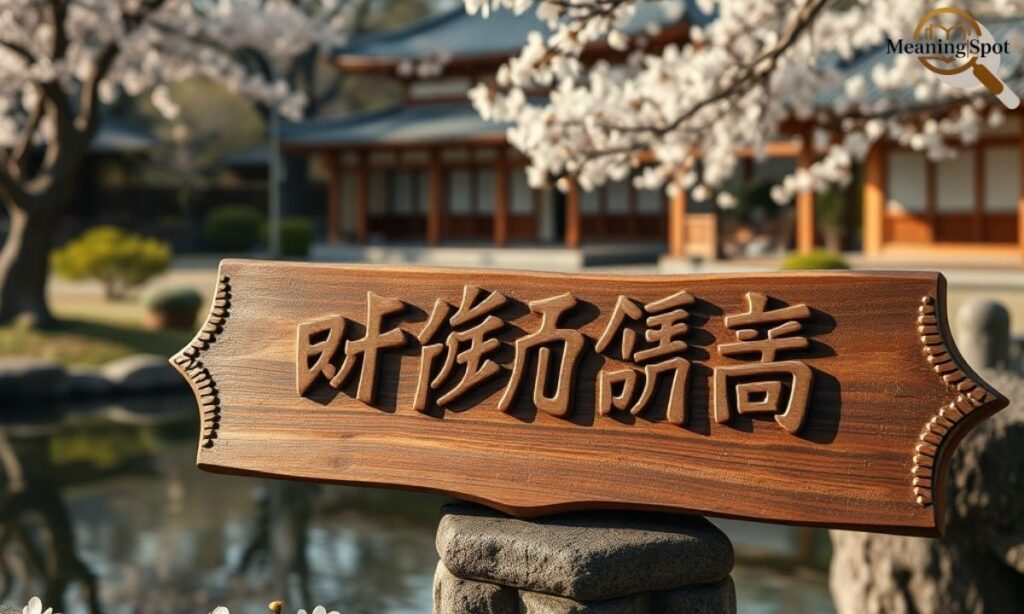
Japanese naming culture runs deep—it’s not just about what sounds pretty or trendy. Every name carries intention, from the kanji characters chosen to the balance of sounds and the hopes parents weave into those syllables. Names connect children to seasons, virtues, nature, and even philosophical ideals that stretch back centuries. It’s a thoughtful process where meaning and beauty dance together, and dark or shadow names fit right into that tradition with their own quiet dignity.
- Kotone (琴音) – Koto sound harmonizing
- Haruki (春樹) – Spring tree growing
- Aoi (葵) – Hollyhock flower blooming
- Ren (蓮) – Lotus purity rising
- Sakura (桜) – Cherry blossom falling
- Sora (空) – Sky expanding endlessly
- Yuki (雪) – Snow falling gently
- Hana (花) – Flower opening softly
- Kaito (海斗) – Ocean navigator sailing
- Mizuki (美月) – Beautiful moon shining
- Hinata (陽向) – Sunny place warming
- Akira (明) – Brightness illuminating
- Natsuki (夏希) – Summer hope arriving
- Ayame (菖蒲) – Iris standing tall
- Riku (陸) – Land grounding firmly
- Yūma (悠真) – Gentle truth existing
- Tsubaki (椿) – Camellia enduring winter
- Kō (光) – Light shining through
- Momiji (紅葉) – Autumn leaves turning
- Izumi (泉) – Spring water flowing
- Takumi (匠) – Artisan crafting skill
- Shiori (栞) – Bookmark guiding page
- Makoto (誠) – Sincerity holding truth
- Nao (直) – Honesty standing straight
- Midori (緑) – Green growth spreading
Shadow Names in Other Cultures: A Worldwide Trend
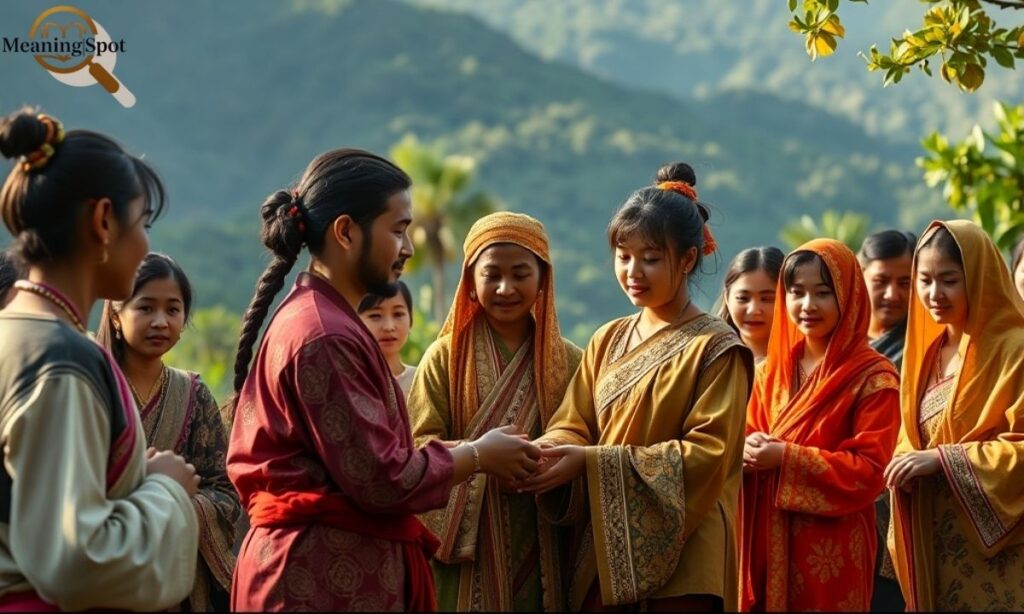
Shadow names aren’t just a Japanese thing, cultures worldwide have been drawn to darkness, mystery, and the poetic side of night for as long as people have been naming babies. From Celtic myths to Sanskrit roots, shadow shows up wearing different faces but carrying similar weight. It’s kind of beautiful how humans everywhere looked at darkness and saw not just fear, but depth, protection, and something worth naming a child after.
- Kieran (Irish) – Little dark one
- Melanie (Greek) – Dark, black-haired beauty
- Layla (Arabic) – Night falling gently
- Ciaran (Irish) – Dark-haired, shadowy
- Kali (Sanskrit) – Black goddess powerful
- Darcy (Irish) – Dark one walking
- Chandra (Sanskrit) – Moon casting shadows
- Raven (English) – Black bird flying
- Nisha (Sanskrit) – Night embracing darkness
- Delaney (Irish) – Dark challenger standing
- Lilith (Hebrew) – Night monster mythical
- Tynan (Irish) – Dark, shadowy figure
- Kiera (Irish) – Little dark-haired
- Erebus (Greek) – Deep darkness primordial
- Nyx (Greek) – Night goddess ruling
- Sullivan (Irish) – Dark-eyed observer
- Leila (Arabic) – Night beauty sleeping
- Dougal (Scottish) – Dark stranger arriving
- Morrigan (Celtic) – Phantom queen watching
- Blake (English) – Dark, pale contrast
- Umbra (Latin) – Shadow, eclipse casting
- Rajani (Sanskrit) – Night spreading darkness
- Noir (French) – Black, pure darkness
- Tamara (Hebrew) – Date palm, dark
- Dusky (English) – Shadowy twilight hour
Frequently Asked Questions
What are some Japanese names that mean dark?
Some beautiful options include Yami meaning darkness, Kurai for dim or gloomy, Kage meaning shadow, and Yoru which simply means night—each one carries its own quiet mystery.
Are Japanese names that mean dark considered bad luck?
Not at all—in Japanese culture, darkness isn’t necessarily negative; it often symbolizes depth, mystery, protection, and the beauty found in shadows, making these names perfectly acceptable and even poetic.
Can I use a Japanese name that means dark for my baby?
Absolutely, as long as you understand and respect the cultural meaning behind it—these names work beautifully for anyone drawn to their mysterious, elegant vibe, regardless of heritage.
What’s the most popular Japanese boy name that means dark?
Yami and Kage are probably the most recognized, though Kurogane meaning “black iron” has gained popularity for its strong, almost warrior-like feel.
Do Japanese girls’ names that mean dark sound feminine?
Yes, many do—names like Yamiko meaning “child of darkness” or Kurumi meaning “black beauty” carry a gentle, elegant sound while still holding that shadowy depth.
What Japanese last names have dark meanings?
Family names like Kurosawa meaning “black swamp,” Kageyama for “shadow mountain,” and Kurokawa meaning “black river” all carry that darker, mysterious energy through generations.
Is there a Japanese name that means both shadow and light?
Kagemitsu beautifully captures this duality—it literally combines shadow and light, representing that perfect balance between darkness and brightness we all carry inside.
Last Word
Names are more than just sounds we answer to—they’re tiny stories we carry, especially when they hold something as timeless as shadow or darkness. Whether you picked one for a character, a baby on the way, or just because it spoke to something inside you, these Japanese names that mean “dark” offer a kind of beauty that doesn’t need explaining.
Darkness isn’t the villain here. It’s the quiet companion, the mystery that makes light worth noticing, the depth that gives life its texture. Whatever name is called out to you from this list, trust that—it found you for a reason, and that’s the most human thing about naming anything at all.

Emma is an author at MeaningsSpot, where she crafts unique and inspiring names that spark creativity. With over 3 years of content writing experience, she specializes in making words meaningful and memorable.